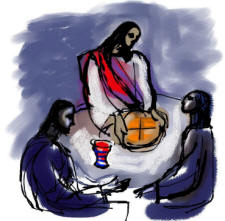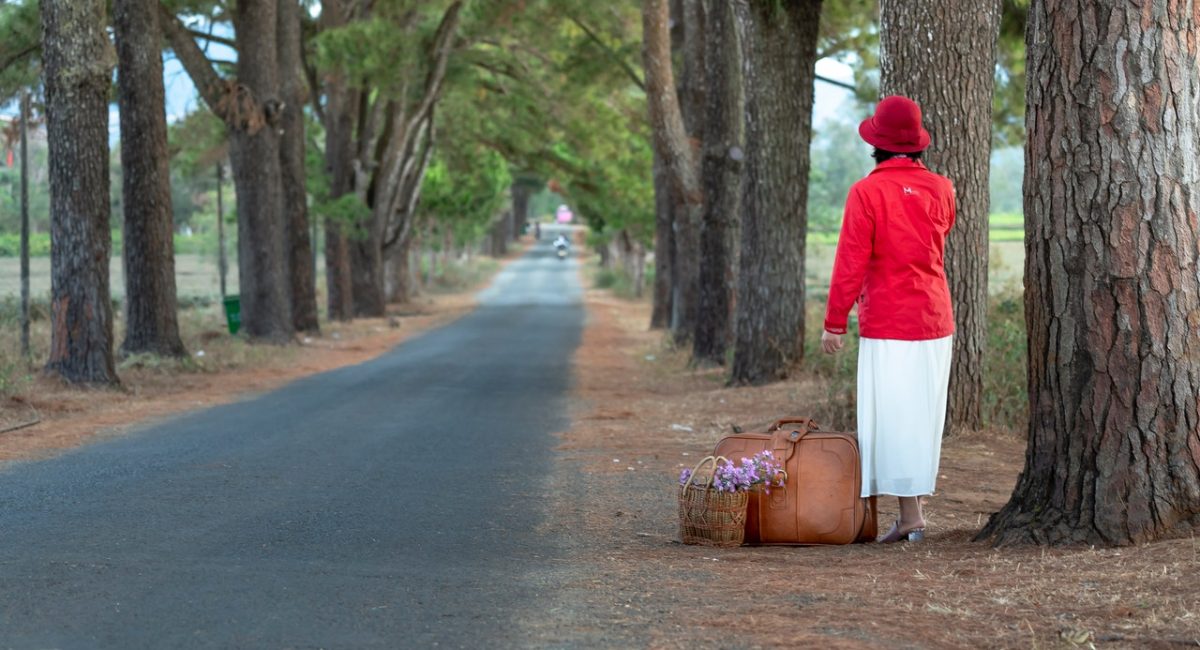CYCLE A | EASTER | WEEK 3
REFLECTION
– By Fr Ugo Ikwuka
Archway, London
This Sunday’s Gospel powerfully captures the whole Christian life. The disciples had embraced Jesus as the Messiah but all their hopes were dashed when he died like a common criminal on the cross. They were furthermore afraid for their own lives because the whole project for which they dared both the Jewish and Roman authorities has failed.
In frustration, two of them were walking away from the city to the margins, from Jerusalem to Emmaus.
The road to Emmaus is thus the road travelled by people who have met with disappointments and frustrations in life; people whose world had collapsed and their hopes and dreams are shattered. There are many like that in our world today. In frustration, we usually tend to walk in the wrong direction.
While everything should gravitate towards Jerusalem, the city of the cross and the resurrection, where life conquers death and light conquers darkness, we tend to walk away, to Emmaus – a garrison town where the Roman army had established itself. In other words, they are moving to a rival centre of power.
While real power is the power of the divine love expressed in the self-giving of Christ (in Jerusalem), we tend to see security in Emmaus, in the arrows, spears and self-indulgence of the Roman times, and the nuclear weapons, tanks and materialism of our time.
Unrecognized, the risen Jesus joins them on this road as co-traveler as they go over all that happened. How telling that even as we walk the wrong way, Jesus comes and walks with us. Yes, our God is not one who waits for us to come crawling to him. The bible is an account, not of our quest for God, but of God’s quest for us. They don’t recognize him because they are walking the wrong way. The way we ‘walk’ is symbolic of the way we live, and if we walk (live) the wrong way, we lack discernment.
Seeing their obvious despair, he asks what they are talking about. He wants to hear their version of what happened. Predictably, they let him down. First, they refer to him as a “prophet” in their narration as though after his tragic death, they could not see in him the Messiah they had earlier acknowledged. Then, they saw his death as the failure of his mission. They dejectedly lamented about their unmet expectations; how they had hoped that he would be the one to set Israel free. For them, freedom meant political liberation from foreign domination, not freedom from the tyranny of sin and death. They are also puzzled by the stories of the women that went to the tomb and found it empty.
Then, still unrecognized, he soundly explains to them how all of the Scripture points to the Messiah and how, far from being a tragedy, the suffering and death of the Messiah, were destined unto his glory. As they reach their destination, in a gesture of hospitality, they invited the stranger in since it is nearly evening. As they sat down to the meal, Jesus the visitor, curiously started acting as the host. He took the bread, said the blessing over it, broke it and gave it to them. And in that very act their eyes opened and they recognised him. He then disappears from sight because of his true presence now in the Eucharist, in the broken bread which is his body.

They are overjoyed and acknowledged that indeed their hearts had been fired up as he talked to them on the road and explained the Scriptures. It was a conversion experience as they turned from the wrong direction and headed back to Jerusalem from which they had been running away. There, they shared their experiences and rejoiced with the other disciples.
In the experience of these two disciples, we find all the ingredients of the Christian life. First is the tendency of believers to run away from where Christ is to be found. Don’t we do this all the time? Second is meeting Jesus in the unexpected place, person or situation. How often does this happen and we do not recognise him, or worse mistreat him? Yet, imagine how lost they would have remained had they not welcomed this stranger. This is particularly instructive with the rising homophobia that is gaining increasing political popularity in our world today.
Third is coming to fuller knowledge of Jesus and his mission only by having the Scriptures fully explained. Yet, how many Catholics go through life hardly ever opening a bible? St. Paul says that faith comes through hearing the word of God. In listening to sound uncompromised preaching of the word lies the possibility of conversion. The tendency to water down the Gospel message today suggests a resignation that people are no more capable of conversion.
We accompany people to be converted to the Gospel values not just to make them well adjusted individuals. That is what happened with the downcast disciples as they walked the wrong direction into the night. While Jesus started by drawing near to them, then asking them questions about their present disposition and listening to them which is typical of psychological therapy to heal the disturbed, he did not stop there.
He went further to challenge them with the word of God, telling them how foolish and slow of heart they are in believing all that have been prophesied in the Scriptures. In today’s world of political correctness, Jesus would have been accused of speaking cruelly to people who are already traumatised. But his blunt message inspired rather than discouraged them. If you offer someone a lukewarm cup of tea, he many not complain but he won’t ask for more.

The Christian life is a journey of conversion away from the night into which the disciples were previously headed to the light of the Gospel into which their encounter with Jesus eventually brought them.
Thus, these two disciples that were travelling the familiar road of the frustrated had two experiences that changed the course of their lives; they encountered God in the Scriptures which lifted their downcast spirit and in the Eucharist – the breaking of bread, which opened their eyes to recognise that God had been with them all along, and that they had not been walking alone.




